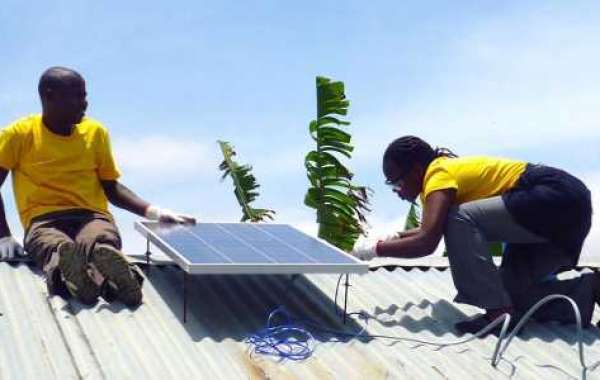Founded in 2017 by Mohamed Rahemtulla, CongoEats allows local restaurants to post their location, menus and pictures, while users can order food and pay online, as well as reserve a table.
Available in Kinshasa, the platform also delivers the food to the client, who can track the progress of their order on the platform. Rahemtulla said it has seen positive uptake.
“We currently have around 500 orders a month on average on CongoEats. This number can be increased as soon as we begin delivering for restaurants as well as expanding into new regions. CongoEats receives over 1,000 daily organic users on our website and mobile app which we see steadily growing over time and can be increased through additional advertising,” he said.
Such has been the success of CongoEats, the team behind it is now branching out into other areas of e-commerce. A second project, eCongo, launched in April, allowing vendors to list their products, such as clothing, electronics, food and groceries, and furniture, for sale. It is already seeing around 100 orders per month, which Rahemtulla hopes to grow to 750 per month by June 2020.
“These numbers can be increased if we require through aggressive advertising. But we also need to make sure that we are logistically prepared to accept the additional inflow of orders to ensure that our quality of service is maintained,” he said.
Both of the startup’s platforms have essentially been in a test phase as Rahemtulla and his team strive to understand the local market and ensure that e-commerce becomes accepted.
“We feel confident enough, seeing the reaction from our users and our research, that we are now willing to take our platforms to the next phase to ensure additional market reach,” he said.
The aim is to take advantage of its first mover status and fill a gaping hole in the DRC market.
“When we launched CongoEats there was no real competition. There was a need of a behavioural change and implementation of technology and to educate users that they can order their food online on the internet, on a website or on a mobile phone,” Rahemtulla said.
“Today we see others entering this market, but being the first to launch a successful online restaurant ordering platform, it still leaves us as market leaders in this sector. We have also continuously been adding additional features onto our platform which ensures that we have always been the preferred choice to our clients.”
Thus far, CongoEats has been self-funded, but as the company expands into new verticals and new markets Rahemtulla said he plans to speak to potential investors. The aim is to begin operations in other cities outside of the capital Kinshasa, and add new features to eCongo. Getting investors interested in DRC-based startups can be challenging, however.
“It has been a turbulent period for DRC due to the political uncertainties that we have faced. However with the new regime, and our new president, things are looking much more positive and we find a lot of investors looking at DRC today,” said Rahemtulla.
The startup, which makes money from things like listing fees, sales commissions, delivery fees and advertising, has faced other challenges as an e-commerce venture in an undeveloped market.
“In the early days after our launch, we found that clients found it difficult to understand the concept of our platform as it was new to most. We took it upon ourselves to educate the users of what our platform does,” Rahemtulla said.
“Along with clients, it was also initially a task to train our vendors to understand and optimise the usage of our platform as to how we expected it to be utilised. We faced difficulties when orders were received, where vendors would not react quick enough. We then took upon the responsibility of adding further steps such as our team receiving notifications every five minutes for every time an order is pending. We implemented follow-up calls, to ensure orders are accepted as soon as possible.”
Logistics has also been a challenge.
“We have begun to handle logistics from our side since the launch of eCongo, and our service is appreciated by our clients. We aim to grow our logistics steadily, to ensure we reach our demands more frequently and efficiently,” said Rahemtulla.
In spite of the difficulties, he feels the e-commerce road is one worth walking for CongoEats and eCongo.
“E-commerce has been a success in multiple countries around the world and in Africa, and a population size such as in DRC presents itself as an ideal market for emerging technology startups with great potential and unimaginable reach. It’s a matter of doing it first and doing it right,” Rahemtulla said.














